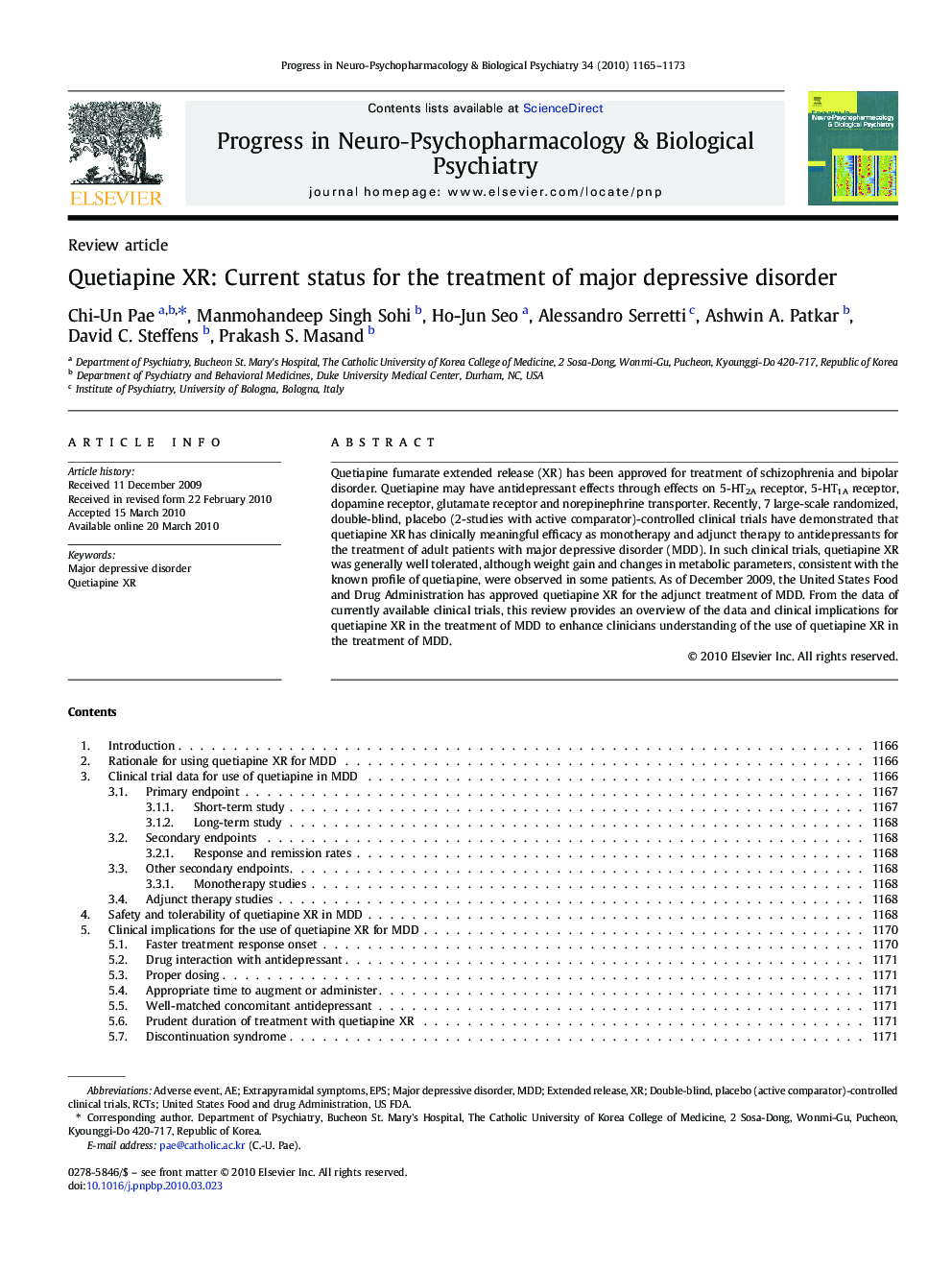| Article ID | Journal | Published Year | Pages | File Type |
|---|---|---|---|---|
| 2565484 | Progress in Neuro-Psychopharmacology and Biological Psychiatry | 2010 | 9 Pages |
Quetiapine fumarate extended release (XR) has been approved for treatment of schizophrenia and bipolar disorder. Quetiapine may have antidepressant effects through effects on 5-HT2A receptor, 5-HT1A receptor, dopamine receptor, glutamate receptor and norepinephrine transporter. Recently, 7 large-scale randomized, double-blind, placebo (2-studies with active comparator)-controlled clinical trials have demonstrated that quetiapine XR has clinically meaningful efficacy as monotherapy and adjunct therapy to antidepressants for the treatment of adult patients with major depressive disorder (MDD). In such clinical trials, quetiapine XR was generally well tolerated, although weight gain and changes in metabolic parameters, consistent with the known profile of quetiapine, were observed in some patients. As of December 2009, the United States Food and Drug Administration has approved quetiapine XR for the adjunct treatment of MDD. From the data of currently available clinical trials, this review provides an overview of the data and clinical implications for quetiapine XR in the treatment of MDD to enhance clinicians understanding of the use of quetiapine XR in the treatment of MDD.
